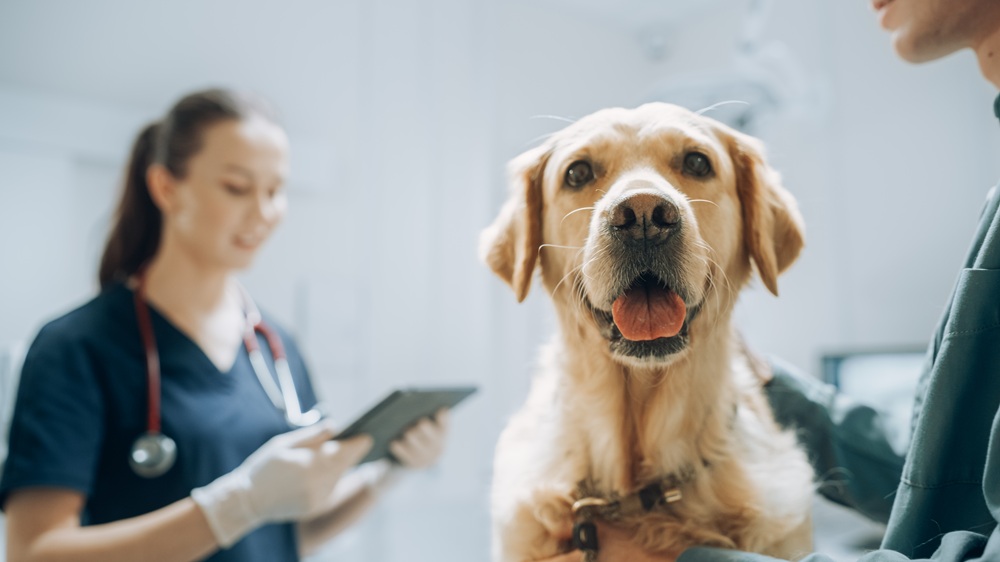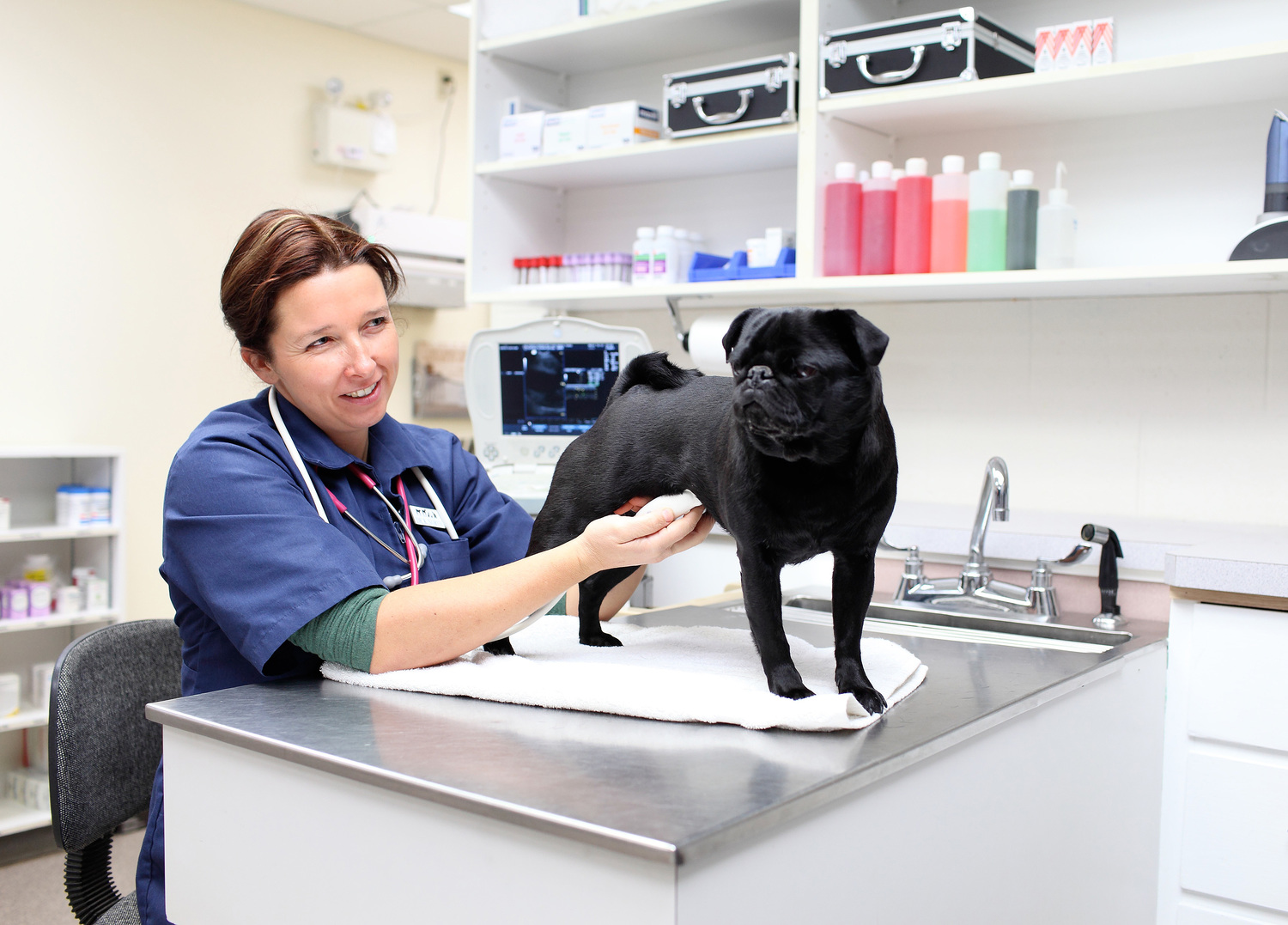Just How a Veterinary Specialty Hospital Can Heal Your Family pet's Disorders With Advanced Techniques
Veterinary specialty hospitals play a vital function in addressing complex wellness issues in animals. They use advanced methods and innovations that enhance diagnosis and treatment. With access to specialized solutions, family pet owners can locate customized options for their pets' ailments. This increases important inquiries concerning the specific approaches used and the benefits they offer. Comprehending these components can notably affect a pet's healing trip.
Comprehending the Role of Veterinary Specialty Hospitals
Primary treatment veterinarians supply necessary services for pet health and wellness, vet specialty hospitals play an essential role in attending to complicated medical problems that require advanced diagnostics and therapy. These centers are equipped with specialized modern technology and knowledgeable specialists that concentrate on particular locations of veterinary medicine, such as neurology, oncology, and cardiology.
Veterinary specialty hospitals promote a collective approach, commonly functioning in combination with an animal's main veterinarian to create complete care plans. They give access to advanced imaging techniques, such as MRI and CT scans, which are not commonly readily available in typical centers. In addition, these hospitals supply extensive treatment units for seriously unwell animals, making certain round-the-clock surveillance and assistance.
Specialized Providers Offered by Veterinary Specialists
Veterinary experts provide essential solutions that improve pet medical care, especially with sophisticated analysis imaging techniques. These devices make it possible for accurate evaluations of complicated clinical problems, leading to much more efficient targeted therapy strategies. By incorporating these specialized solutions, veterinary hospitals can significantly enhance patient results and general wellness.
Advanced Diagnostic Imaging
Advanced diagnostic imaging plays a necessary duty in modern-day vet medication, making it possible for experts to get thorough understandings right into a pet dog's health. Methods such as X-rays, ultrasound, calculated tomography (CT), and magnetic vibration imaging (MRI) enable vets to imagine interior frameworks without invasive treatments - Learn More. These sophisticated imaging modalities aid in detecting a range of conditions, from growths and fractures to organ irregularities. By supplying clear pictures, they improve the precision of analyses, which is crucial for reliable therapy planning. In addition, specialized veterinary radiologists interpret these images, making sure that subtle concerns are not forgotten. Eventually, progressed analysis imaging contributes in delivering considerable treatment, as it permits very early discovery and intervention in a family pet's clinical concerns

Targeted Treatment Strategies
Targeted treatment plans are vital for attending to the particular health and wellness requirements of animals, ensuring that each pet gets customized treatment customized to its one-of-a-kind problem. Veterinary experts create these plans based upon extensive assessments, consisting of advanced analysis imaging and research laboratory tests. By focusing on the individual family pet's diagnosis, lifestyle, age, and type, professionals can suggest efficient treatments, ranging from drug changes to medical interventions. These strategies also include follow-up care and checking to track the pet's development and make necessary adjustments. This strategy advertises ideal outcomes and improves the overall lifestyle for pets dealing with complex wellness difficulties. Ultimately, targeted therapy plans stand for a dedication to giving the greatest requirement of vet care.
Advanced Diagnostic Techniques for Accurate Diagnoses
As pet dogs encounter progressively complex wellness challenges, the integration of advanced diagnostic methods has actually come to be vital for achieving exact medical diagnoses. Veterinary specialty hospitals make use of modern imaging modern technologies, such as MRI and CT scans, to visualize internal structures with amazing clearness. These modalities enable veterinarians to identify abnormalities that may not show up via traditional approaches.
Along with imaging, advanced research laboratory tests, consisting of hereditary and biomarker analyses, give essential insights into underlying conditions. These tests allow veterinarians to discover diseases at earlier phases, facilitating timely treatment. The use of endoscopy permits for direct visualization of internal body organs, aiding in the diagnosis of stomach and breathing problems.
Innovative Treatment Options for Complex Problems
Cutting-edge therapy alternatives for intricate problems in family pets have become an important focus within veterinary specialty hospitals. Using cutting-edge diagnostic tools, these centers improve their capability to identify problems accurately and tailor ideal interventions. Veterinary. Furthermore, the application of minimally intrusive treatments and progressed recovery methods provides pets a far better chance at recovery with minimized discomfort
Sophisticated Diagnostic Tools
While the landscape of vet medicine remains to develop, cutting-edge analysis devices have actually become essential possessions for addressing complex conditions in pets. These sophisticated innovations, including electronic imaging, ultrasound, and molecular diagnostics, allow vets to obtain specific info regarding a pet's health standing quickly. For circumstances, high-resolution imaging techniques can reveal complex information of interior frameworks, allowing accurate analyses of illness or injuries. In addition, hereditary screening offers understandings into genetic problems, guiding customized treatment strategies. By leveraging these innovative diagnostic tools, veterinary specialty hospitals can enhance their capability to identify conditions that might have previously gone unnoticed. Inevitably, these advancements contribute to improved outcomes and enrich the overall top quality of treatment supplied to cherished family pets.
Minimally Intrusive Procedures
Developments in vet medicine have actually paved the way for minimally intrusive procedures, which provide brand-new therapy options for complicated conditions in pets. These innovative strategies, such as laparoscopy and endoscopy, permit veterinarians to perform surgeries with smaller incisions, reducing injury and recovery time. By using specialized tools and cameras, vets can diagnose and deal with concerns like lumps, food poisonings, and joint problems with accuracy - Learn More. This strategy reduces discomfort and leads to quicker recovery, enabling family pets to return to their regular activities faster. On top of that, minimally invasive procedures frequently cause less scarring and a lower threat of difficulties. As veterinary specialty hospitals embrace these advanced methods, pet proprietors can feel much more confident in their animals' treatment and total health
Advanced Rehabilitation Techniques
As vet medication progresses, advanced recovery strategies are ending up being crucial for managing complex problems in pets. These methods encompass a series of innovative therapy choices, consisting of hydrotherapy, laser treatment, and physical therapy. Hydrotherapy utilizes water resistance to boost mobility and enhance muscle mass, advantageous for pet dogs recuperating from surgery or injury. Laser treatment promotes recovery by reducing swelling and pain, fostering quicker healing times. Physical therapy uses targeted workouts to boost toughness and flexibility, tailored to each pet's specific requirements - Veterinary. Furthermore, modalities like acupuncture and chiropractic modifications can better sustain rehabilitation by relieving pain and improving overall health. Veterinary specialty hospitals are significantly integrating these strategies, ensuring animals obtain detailed care that attends to both physical and emotional recovery, ultimately boosting their lifestyle
The Importance of a Multidisciplinary Technique
A multidisciplinary technique in veterinary treatment greatly enhances the treatment results for animals, as it integrates proficiency from numerous specialties to resolve complicated health and wellness concerns. This collaborative method includes vets, professionals, technicians, and assistance personnel collaborating to develop thorough therapy strategies customized to every animal's distinct demands. By integrating understanding from fields such as surgery, inner medicine, oncology, and rehabilitation, veterinarians can recognize underlying problems that may or else go unnoticed.
Moreover, this strategy promotes interaction amongst staff member, making sure that all aspects of a pet dog's wellness are taken into consideration. For circumstances, a family pet recuperating from surgery may take advantage of input from both a specialist and a rehabilitation specialist, causing a more reliable recovery process. Eventually, a multidisciplinary technique not only enhances the quality of treatment but additionally enhances the overall health of pet dogs, supplying them with the very best chance for an effective healing and long-term wellness.
Cutting-Edge Innovation in Veterinary Medicine

Telemedicine has actually additionally become an important resource, enabling vets to seek advice from family pet owners from another location, therefore facilitating prompt treatments. Additionally, the integration of synthetic knowledge in analyzing clinical information adds to more reliable treatment strategies tailored to individual demands. Sophisticated laboratory equipment enables fast blood analysis and virus detection, cultivating prompt clinical actions. As vet specialty hospitals continue to integrate these advancements, they not only improve the high quality of care however likewise considerably enhance the general wellness of family pets.
Success Stories: Real-Life Examples of Family Pet Recuperation
Countless heartfelt success tales show the exceptional recuperations of pets dealt with at vet specialty hospitals. One such instance entailed Bella, a Golden Retriever detected with a serious orthopedic concern. After innovative medical intervention and rehabilitation, Bella was not only able to stroll once more yet additionally to run happily in the park, much to her proprietors' pleasure.
Another motivating tale functions Max, a pet cat with chronic kidney disease. Through specialized nutritional administration and ingenious treatments, Max's problem stabilized, permitting him to reclaim his energy and appetite. His proprietors were overjoyed to see him return to his lively self.
Lastly, Luna, a Dachshund that experienced a spinal injury, underwent innovative therapies, causing an amazing healing. These stories highlight the expertise and concern discovered in veterinary specialty hospitals, showcasing their capacity to restore wellness and happiness to precious animals and their family members.
Often Asked Questions
What Should I Anticipate During My Family pet's Specialty Consultation?
Throughout a specialty examination, pet proprietors can expect a detailed evaluation, thorough case history discussions, diagnostic tests, and customized therapy choices. The vet specialist will provide understandings and suggestions for the pet dog's specific health and wellness demands.
How Can I Discover a Veterinary Specialty Hospital Near Me?
To discover a vet specialty hospital close by, one can use on the internet internet search engine, check regional directory sites, or look for suggestions from important source key vets. Additionally, animal proprietor discussion forums can supply valuable insights and experiences regarding close-by centers.
Are Specialty Provider Covered by Pet Dog Insurance?
Specialty services might be covered by family pet insurance policy, yet coverage varies by policy. Owners should carefully review their insurance plan details and consult their company to comprehend the level of protection for specialty veterinary services.
The Length Of Time Will My Animal's Treatment Take?

The period of an animal's treatment can vary significantly, usually varying from a couple of days to numerous weeks. Variables influencing this timeline include the specific problem, treatment type, and the pet dog's general wellness and feedback.
What Are the Costs Connected With Specialty Veterinary Care?
The costs associated with specialty vet treatment can differ commonly, normally varying from hundreds to thousands of bucks. Aspects influencing these expenditures include the complexity of the problem, required therapies, and diagnostic treatments required for effective care.
Veterinary specialty hospitals play an important duty in attending to complex wellness issues in family pets. Primary care vets provide crucial services for pet wellness, veterinary specialty hospitals play an essential role in addressing intricate medical conditions that call for advanced diagnostics and therapy. Veterinary specialty hospitals facilitate a collective method, often working in combination with a pet's main vet to create extensive care plans. Cutting-edge treatment choices for complicated problems in pets have emerged as an essential emphasis within vet specialty hospitals. A multidisciplinary strategy in veterinary care considerably boosts the treatment results for pet dogs, as it integrates know-how from numerous specializeds to address complex wellness issues.